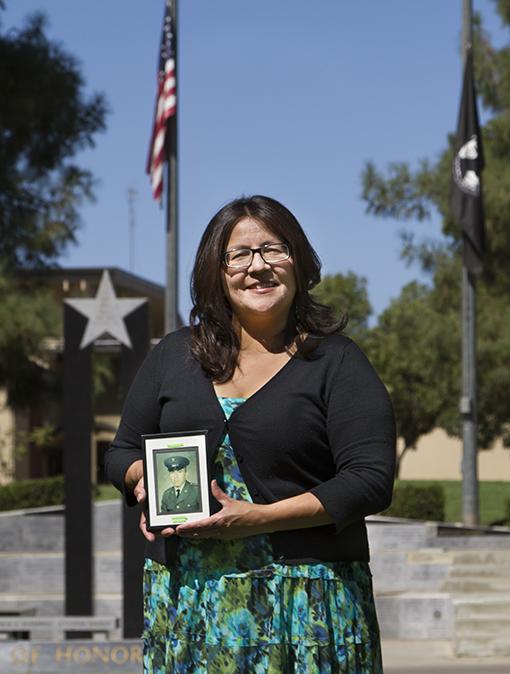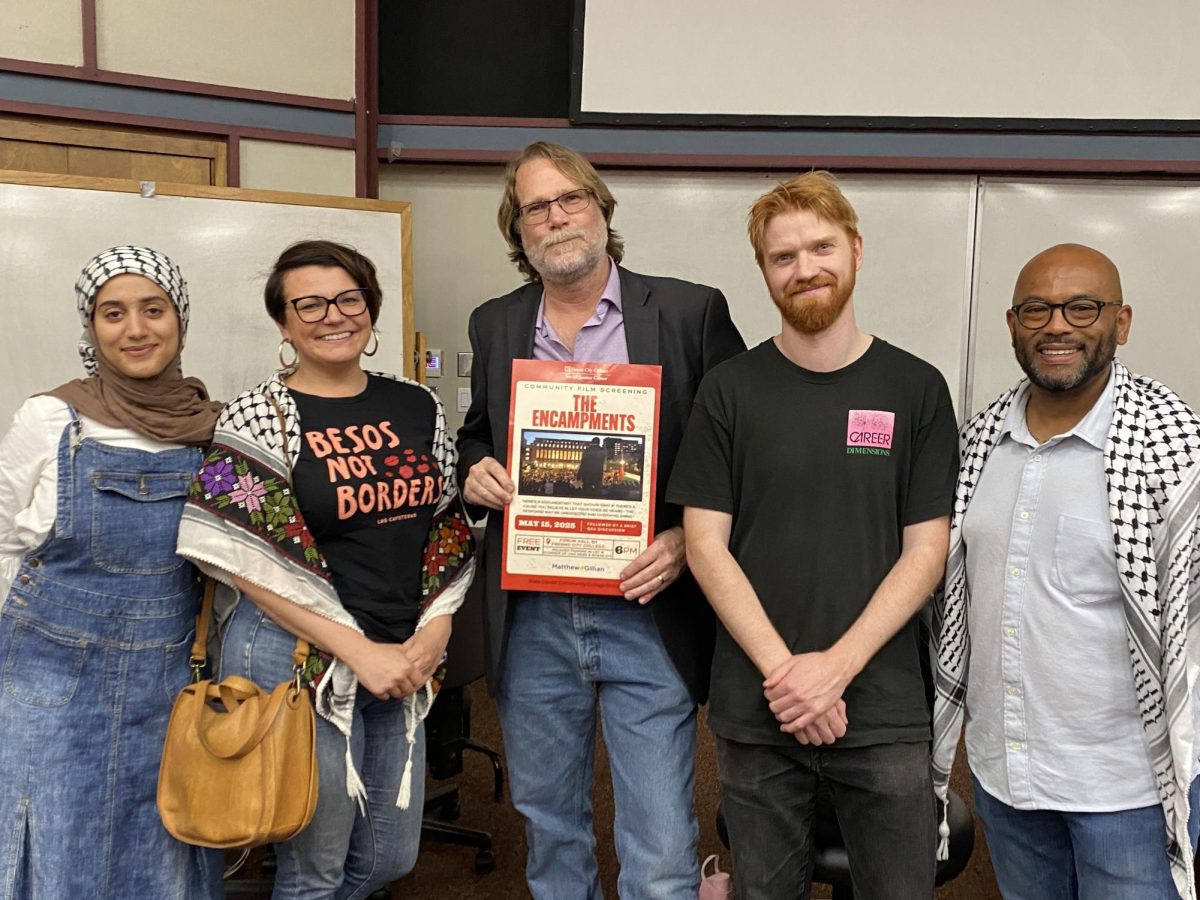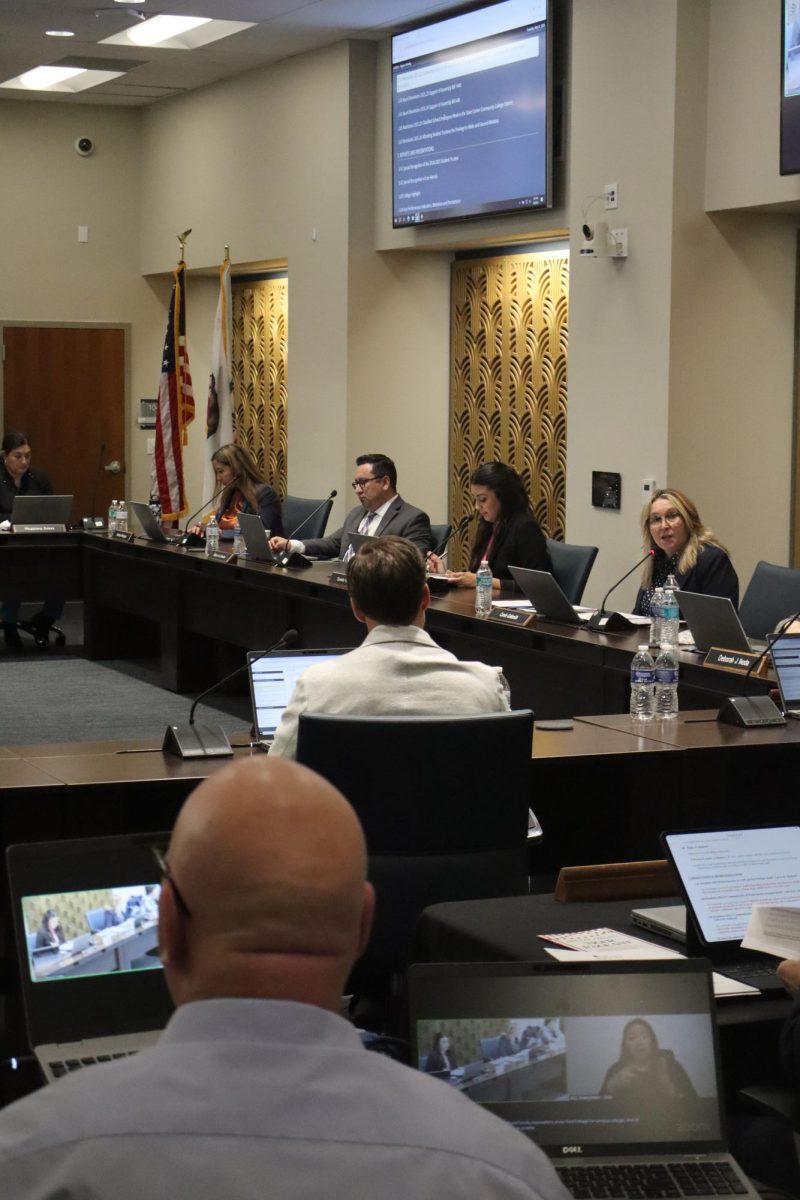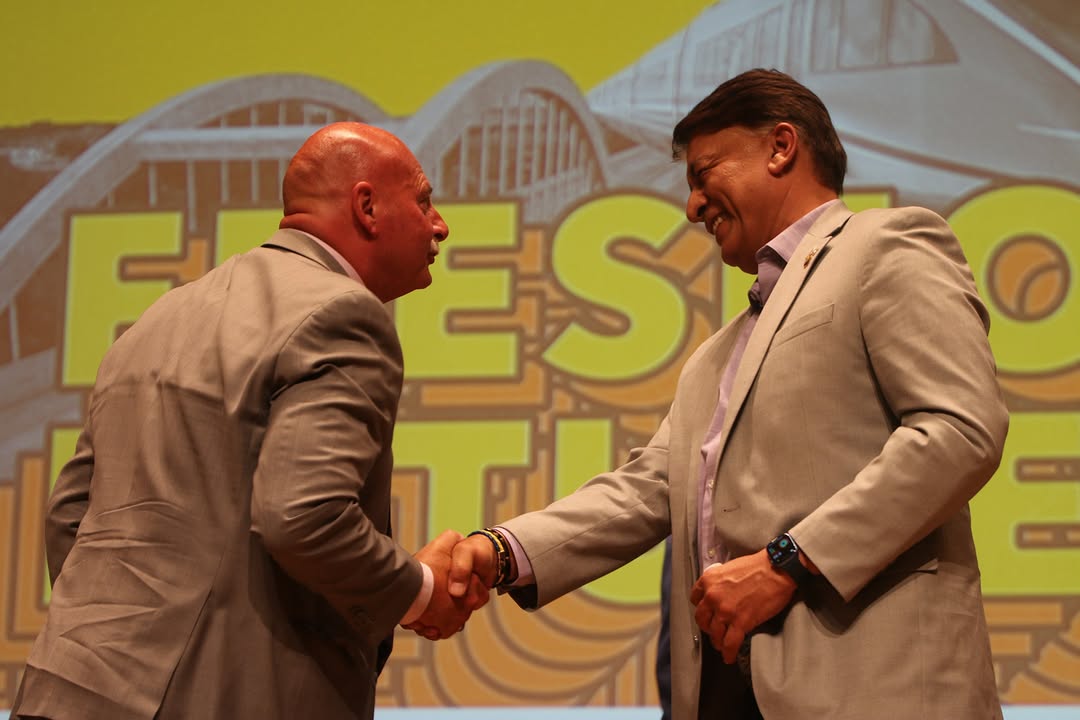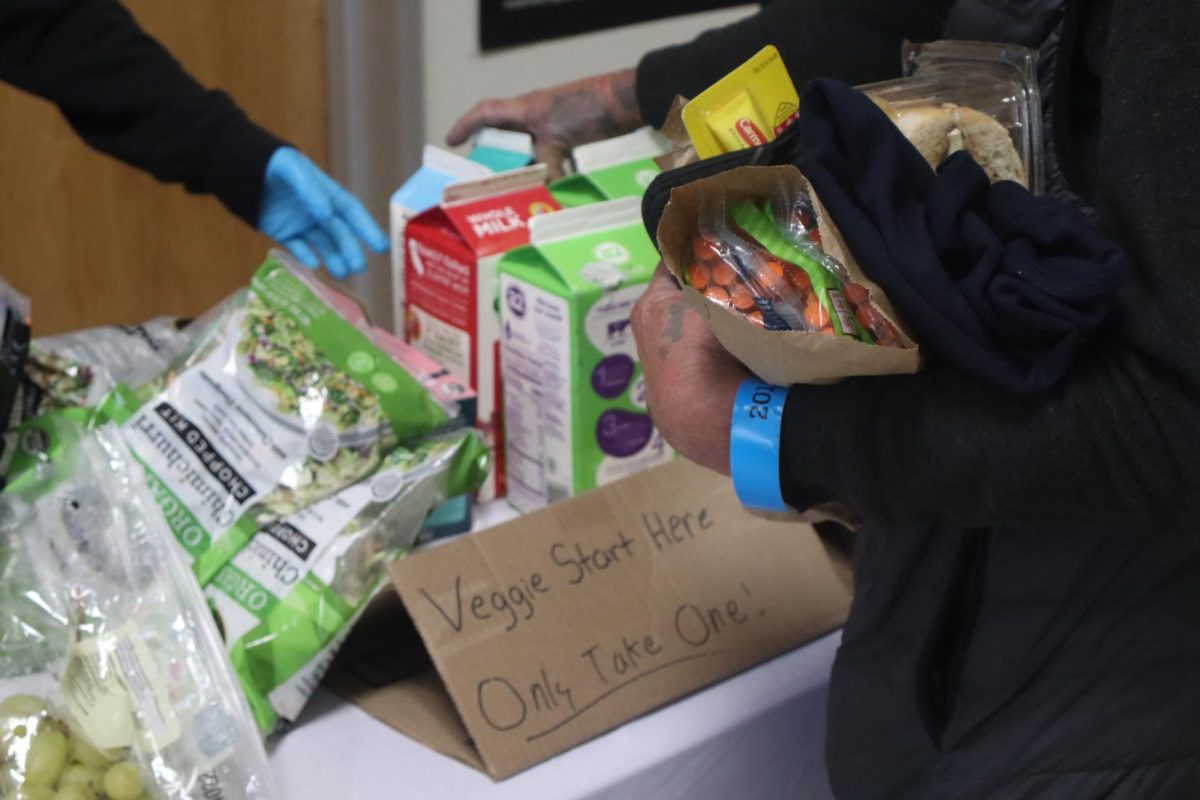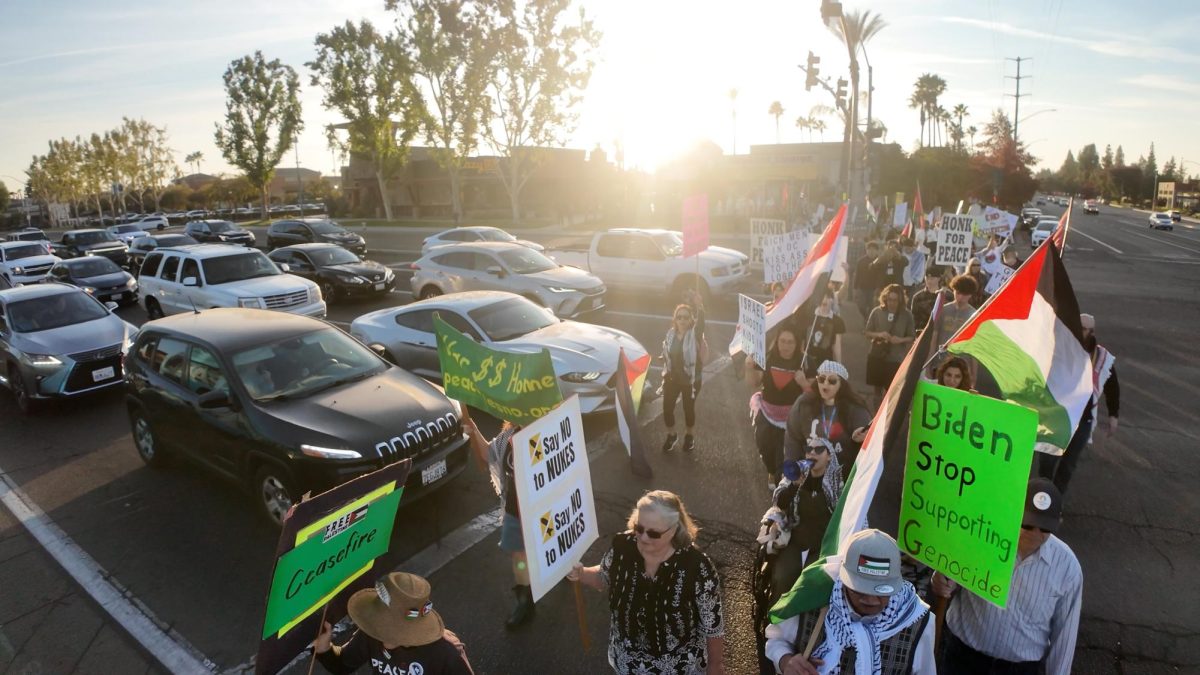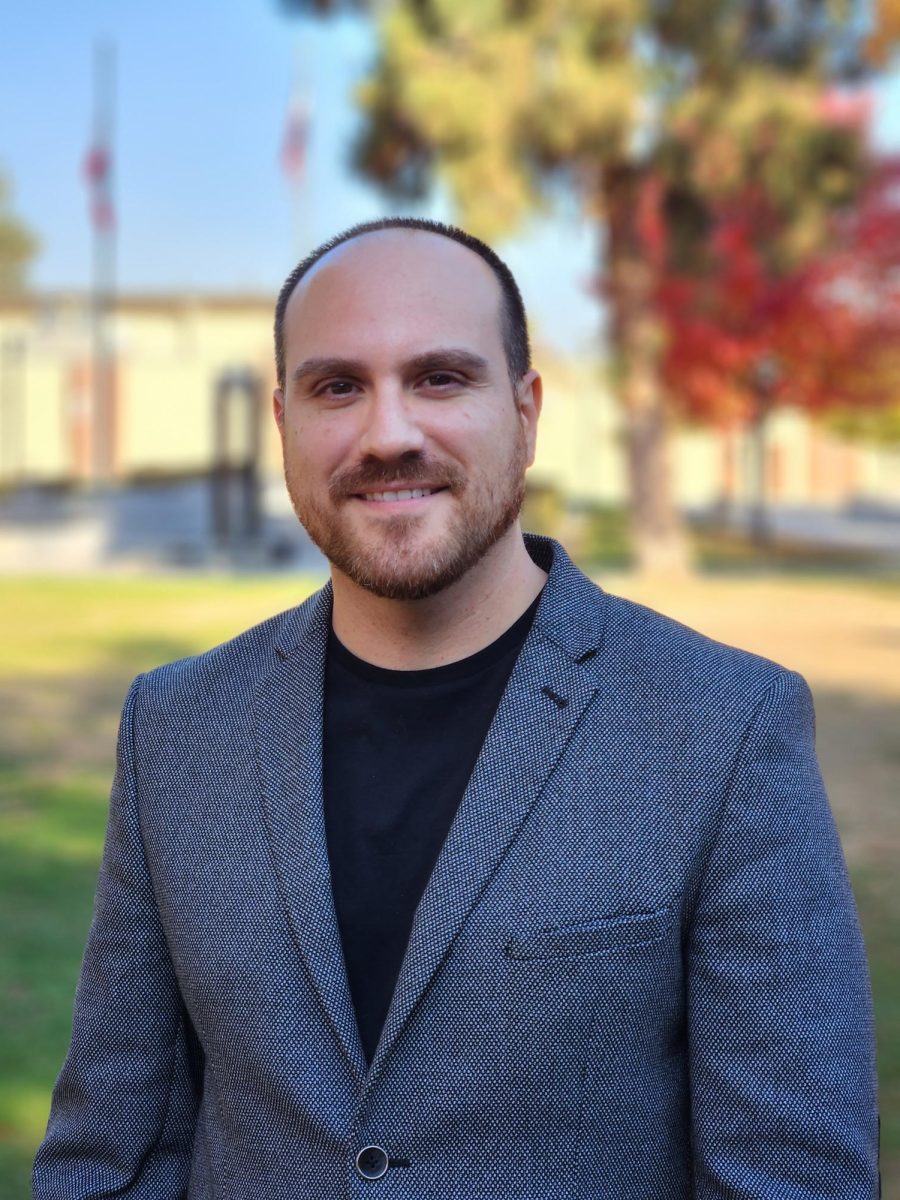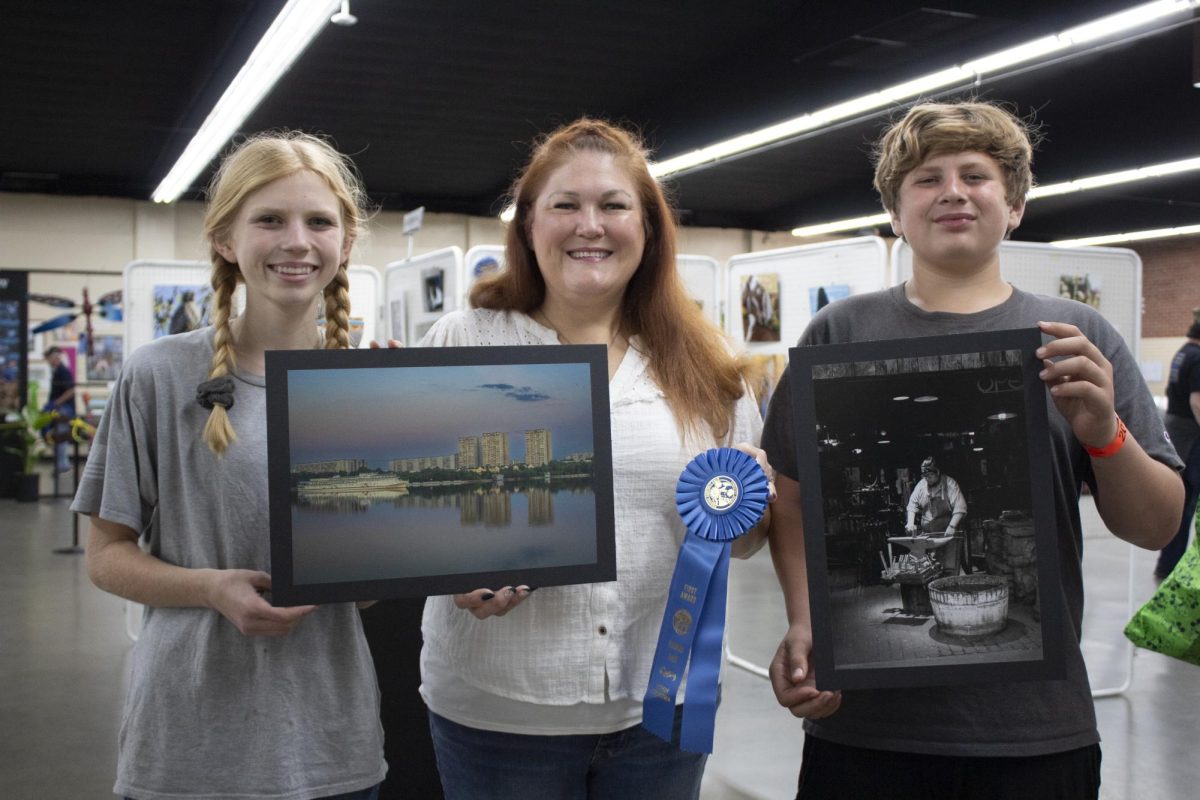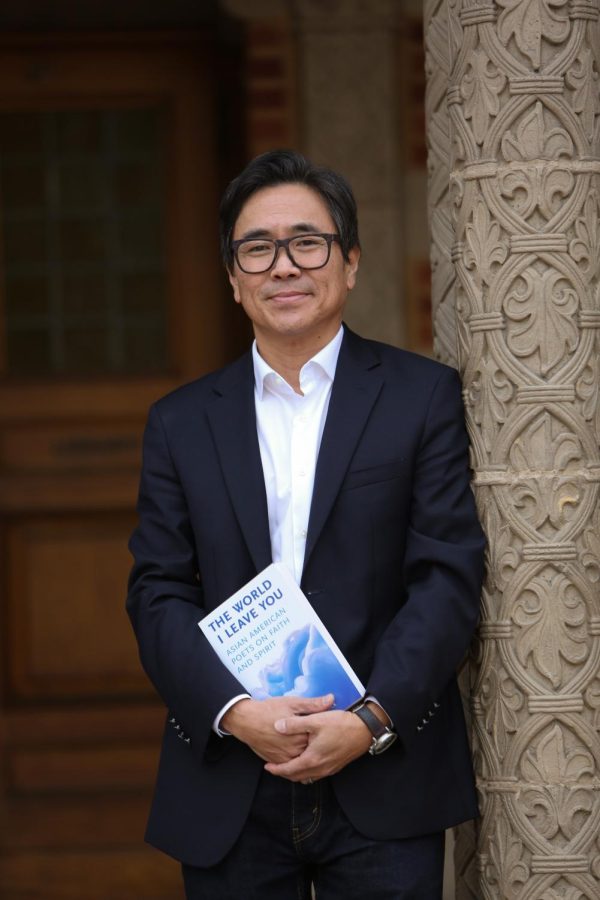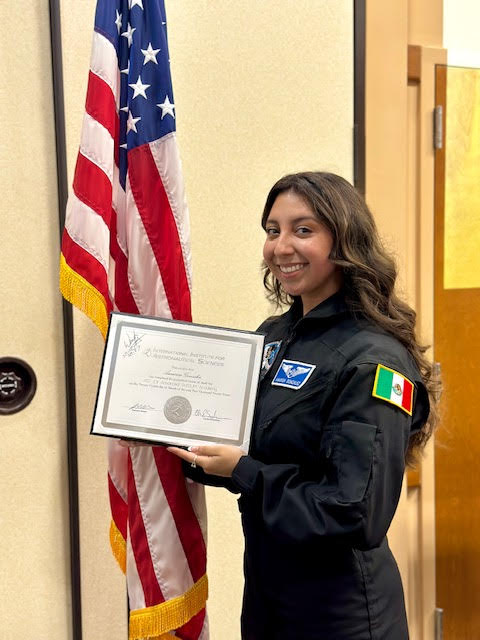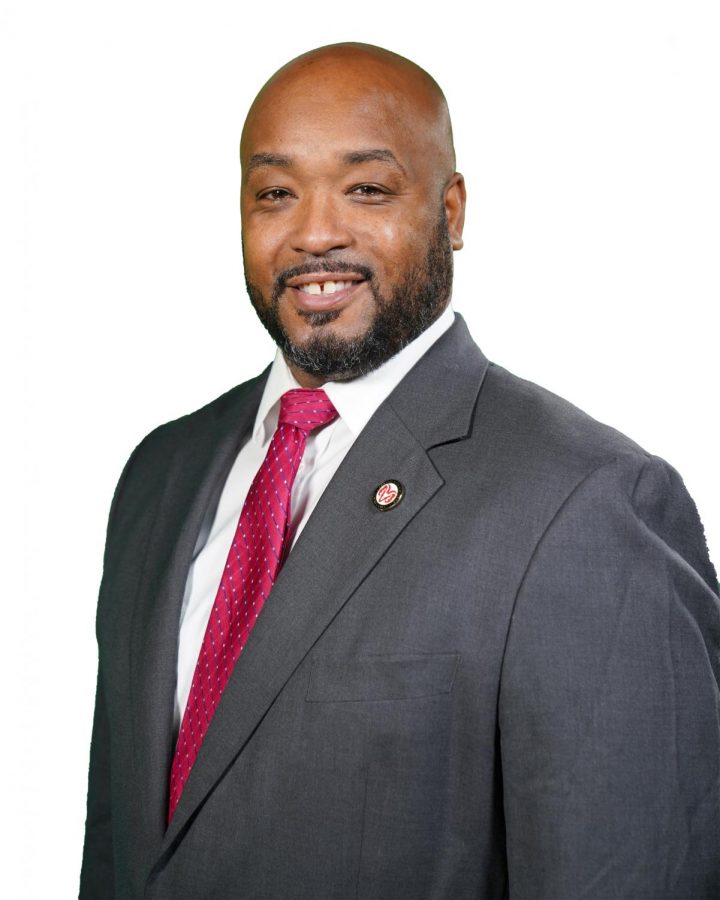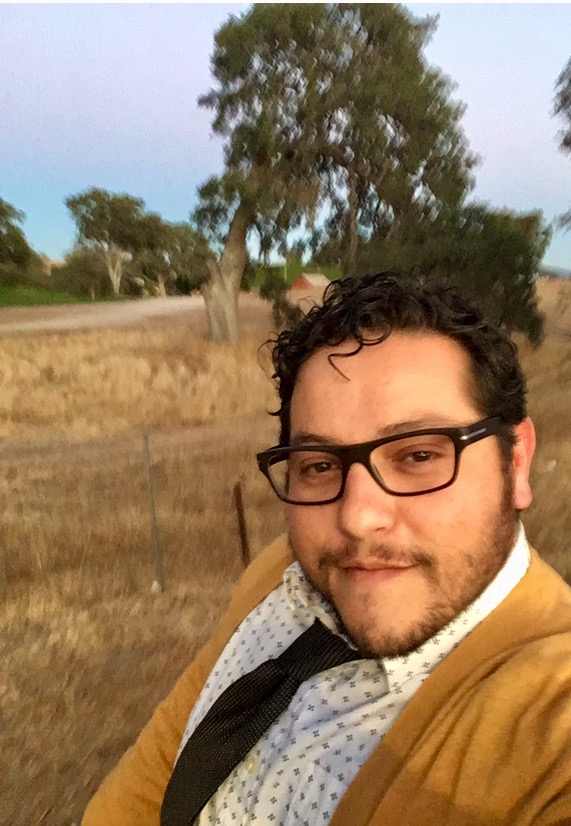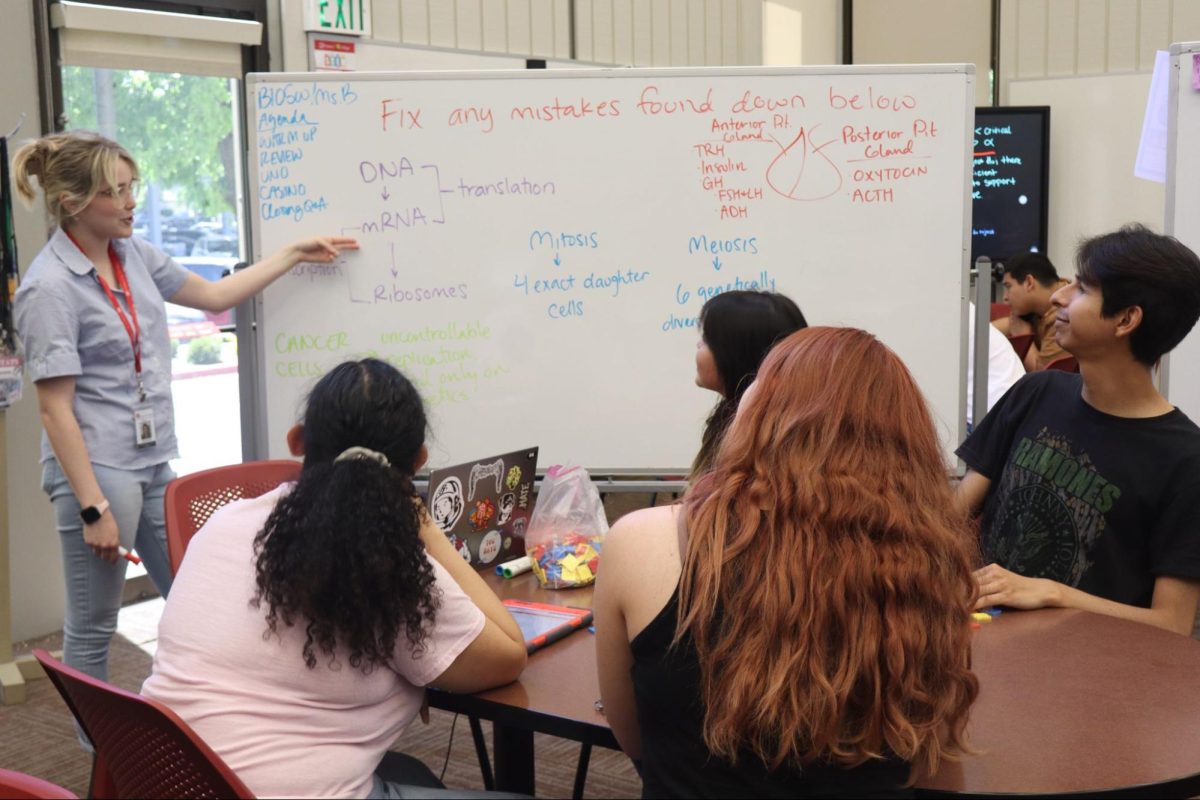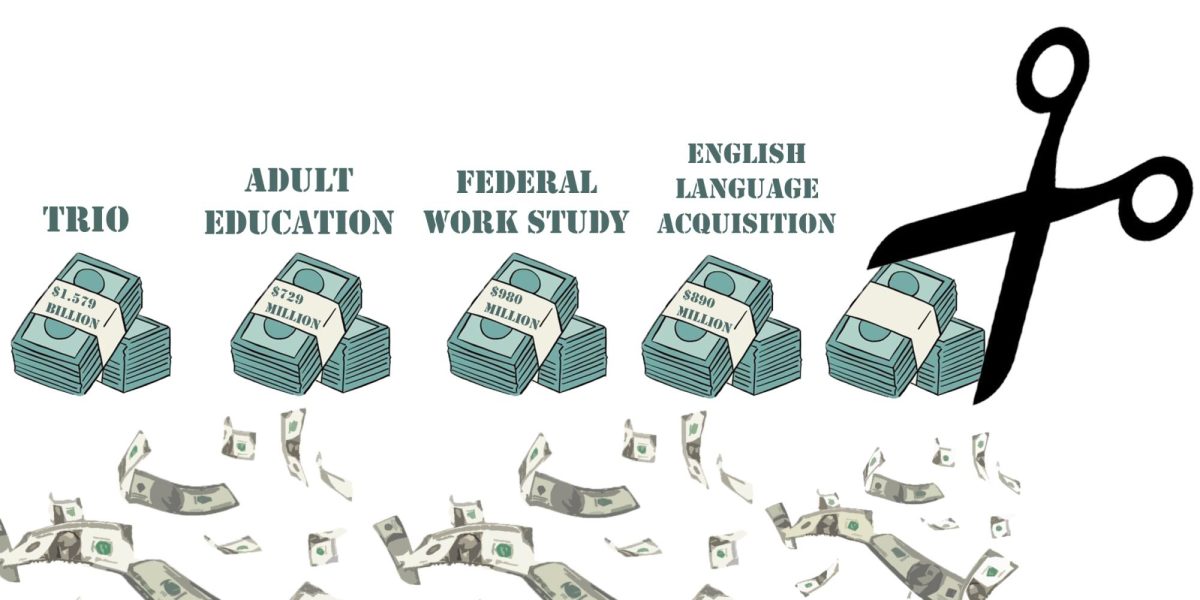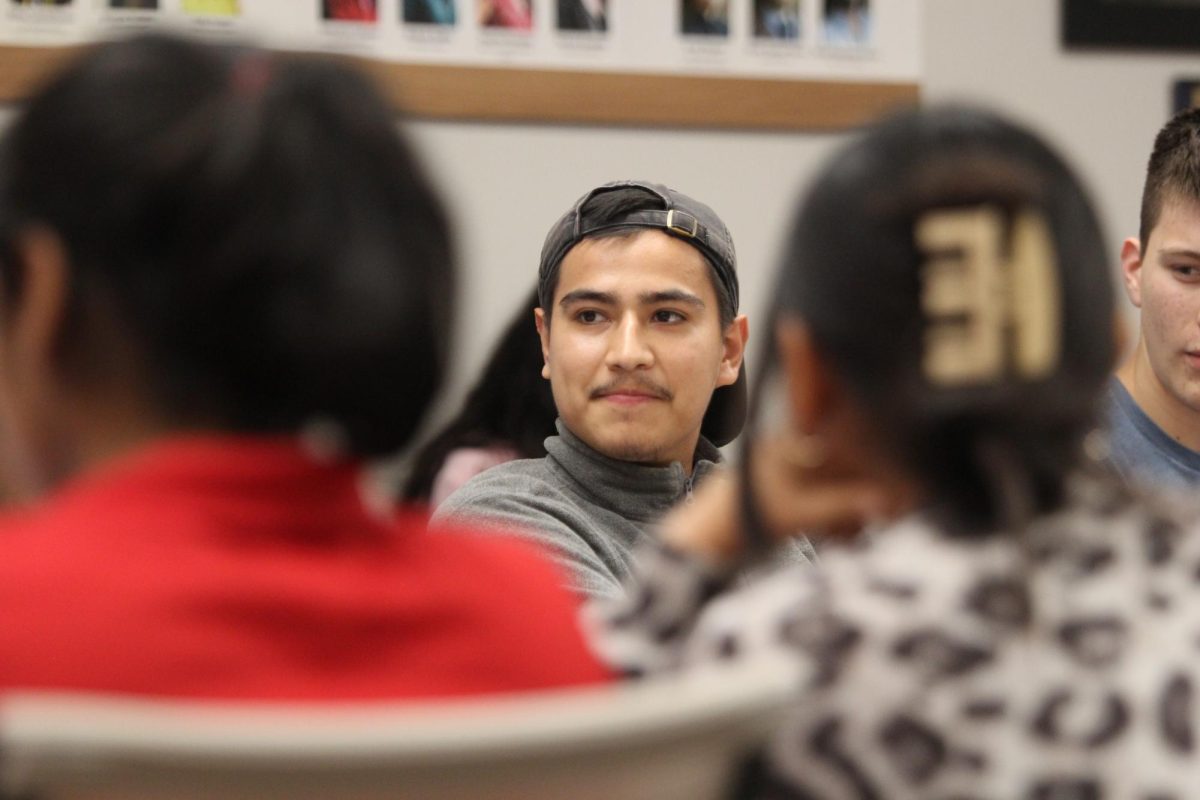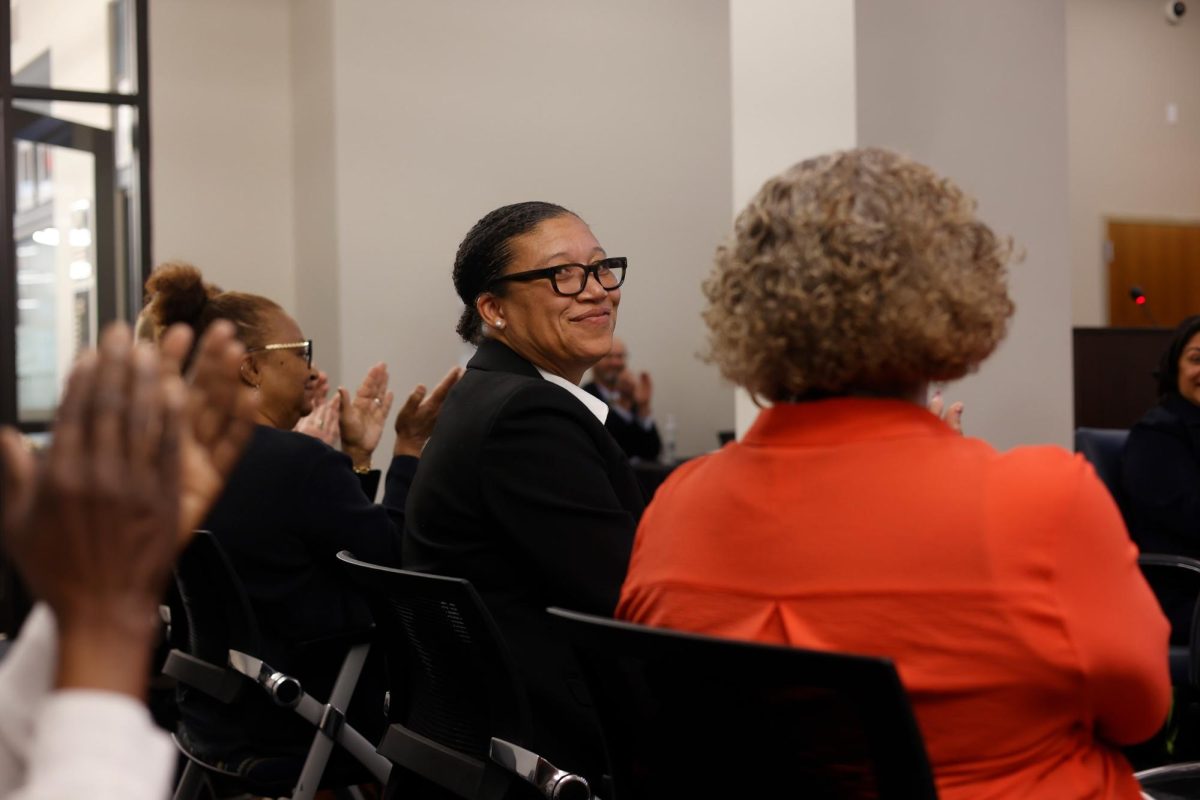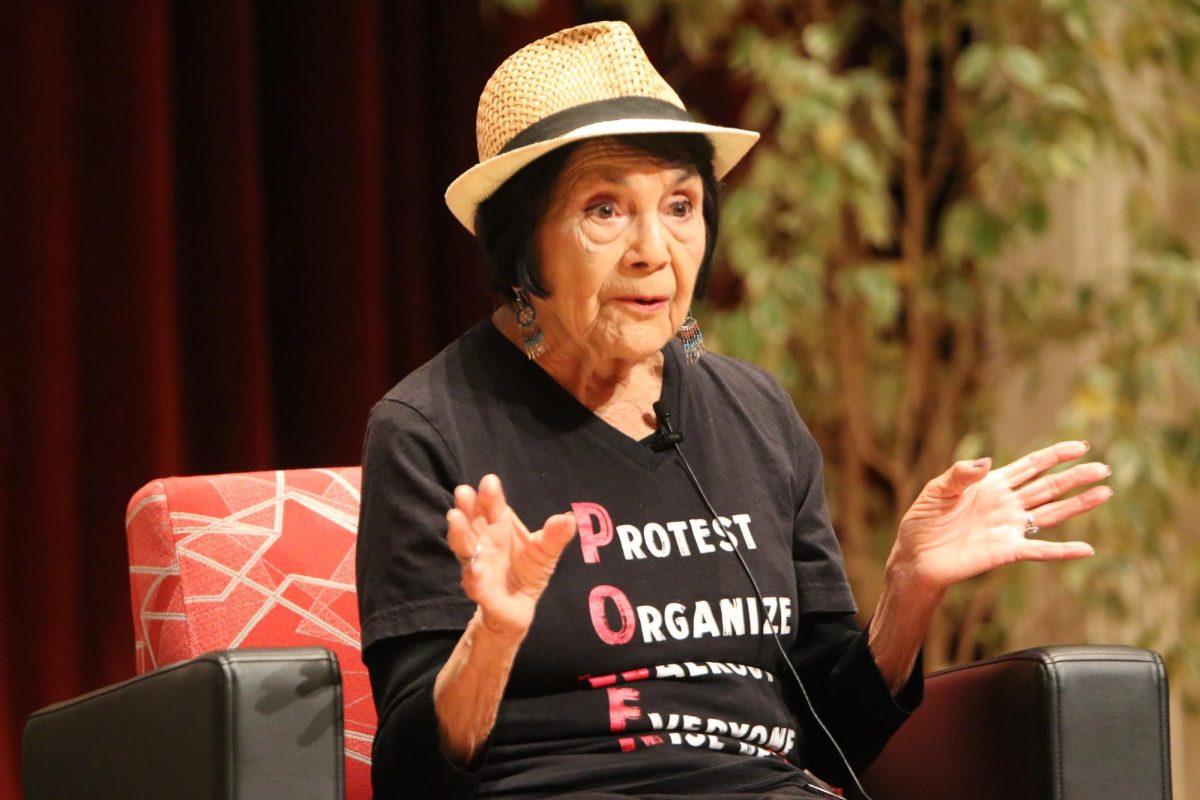Lack of sleep.
Depression.
Isolation.
Shortage of memory.
Mario Reposo said these are some of the issues he faced when he first returned from his military service. He was 20 years old and had served all over the world. While in service, he had grown used to the heightened senses and to the unpredictability.
Then it all ended, and he was home. And everyone expected him to wake up in the morning and go to bed at night, to feel excited about things and return to normal. So he suffered, and felt no one else understood what he was going through.
Now a veteran’s counselor at Fresno City College, Reposo uses his experience to connect with veteran students.
When he first started his counseling job at FCC, Reposo compiled a list of veteran support services that are available in the community and came up with a form that explains who the organizations are and what they offer to veterans. He also informed veterans about the different services available on campus such as: Psychological Services, Disabled Student Programs And Services(DSP&S), tutoring, and college activities.
Out of the 1,200 veterans at FCC, 700 receive benefits. Majority of them don’t have struggles when they return to the civilian life, but for some adjusting to a normal life is a monumental task.
“There are a lot of students that need the services. Coming to college is a very isolating thing for veterans because they are older; they have experienced things most students don’t experience. They’re a bit more mature. They have a hard time connecting with their peers on campus,” said Reposo.
Three years ago Reposo joined Psychology instructor Todd Martinez to build a veterans’ club on campus. The club however, didn’t go far. “We had some veterans that were interested but they would disappear. The president wasn’t a veteran so if there isn’t a veteran, it’s very difficult,” said Reposo.
Now Reposo has joined other faculty members in hopes of establishing a veterans association. Though the association hasn’t been formalized yet, it has been active for the last four months. It has a membership of 50 veterans but only about 12 show up to the meetings. The other faculty members on the association include History instructor Allan Siroky, English instructor Dr. Rosemarie Guglielmino and Financial Aid Secretary Josephine Llanos.
Inspired by her brother who fought in the Vietnam War, Llanos established the scholarship for veterans. This semester Oman S. Blanco, Matthew Campanile and Jose Chavarin received the
Frederick Edward Jaso Veterans Scholarship.
Llanos is optimistic about the association and about other programs available for veterans.
“The college is doing what it can to assist veterans. Our Vice President of Student Services, Dr. Christopher Villa, has created a veterans task force to look at and address needs of veterans. Recommendations have made been made to the president with regards to veteran students. They have voiced their concerns through the task force,” said Llanos.
Reposo believes that getting veterans together is one of the major steps in assisting veterans. “When the veterans get together, they share all kinds of information. It’s amazing what government services and programs are available. It’s an information sharing process but it’s also a socializing gathering,” said Reposo.
Part of Reposo’s mission has been looking at how other campuses are providing veteran services. Reedley College is one campus Reposo has looked at. At Reedley, each department has one faculty member specifically assigned to assist veteran students. There is also a veteran resource center where veterans can come together and share information.
Though it is uncertain when a veterans’ resource center will be available at FCC, Llanos remains hopeful.
“The college has been supportive but it’s hard to say when it will happen. Everything on campus has to go through a process and we have to wait for the process to finish. We’re going to continue to help veteran students either way,” said Llanos.
For Llanos and other faculty members assisting veterans, their work has been made easier thanks to the discipline of veteran students.
“I don’t have problems with people coming in late or missing appointments. They’re very formal and very appreciative,” said Reposo. “Some veterans come with problems, but the majority don’t. Even the ones with problems make the best students. When they go to CSU and UC, their completion rate is in the 90 percentile. They’re more mature and they realize education is important.”
The challenge for Reposo is finding enough time. As a part time counselor, he finds it hard to do all the things he wants to do. “When I’m here I’m packed, my schedule is always full,” said Reposo. “From having been a veteran on campus, I realize that I need more than just a guy that does my student aid plan and says goodbye. I have to be familiar with the organizations. Their clients are our students and our students are their clients.”
Attending association meetings, task force meetings and finding supportive services are tasks that Reposo must do on his time. Another one of his focuses is to work with organizations. But this too is difficult to accomplish as a part time counselor.
“If I’m working by myself the student loses out. If I’m working with organizations, it works a lot better. It puts (FCC) as the focus of organizations. They want to come and work with our veterans. They see the opportunities the college has for veterans,” said Reposo.
Although there are other counselors that see veterans, Reposo is the only counselor assigned specifically for veterans. Early in his career, Reposo recognized the issue.
“If the counselor was busy, the veteran would wait 4-5 hours while the average student was seen within 30 minutes. I couldn’t see that anymore. That’s not right,” said Reposo. He also emphasizes the significance of a veteran connecting with a veteran.
“There are things only a veteran understands,” he said.
This understanding includes the physical and mental impairments which veterans face. “Sleep problems and depressions are common for veterans. You get separated from a world where you get a meal a day and housing. Suddenly you find yourself in a world where you don’t understand. You have to re-adjust because you’re different,” said Reposo.
Adding to the challenge for veterans is the initial process to receive benefits. The process takes up to 12 weeks and leaves veterans wondering what to do in the meantime. “They have lost their job, some have lost their home so now what happens?” said Reposo. “If we have different organizations and the campus working together, we can address those needs.”
There is also the challenge of meeting the Veterans’ day-day needs. Among these needs are being able to refer them to the right place and attending to their medical care.
“There are different programs around town but if the veterans don’t know them, they don’t exist. The same goes for programs on campus. You have to empower students and give them information,” said Reposo.
Recently a “Flex Day” activity was held at Fresno City College to help faculty understand veterans. “Twenty eight faculty members came and they asked very good questions,” said Reposo.
An orientation was also held to bring veterans together. But only three showed up. “They were overwhelmed. We can’t afford to have them disappear,” said Reposo. “As fellow citizens we can’t let that happen. They’re ours sons, our daughters, our neighbors. We have to make it a more friendly place for veterans in particular because of what they have contributed to our country.”

